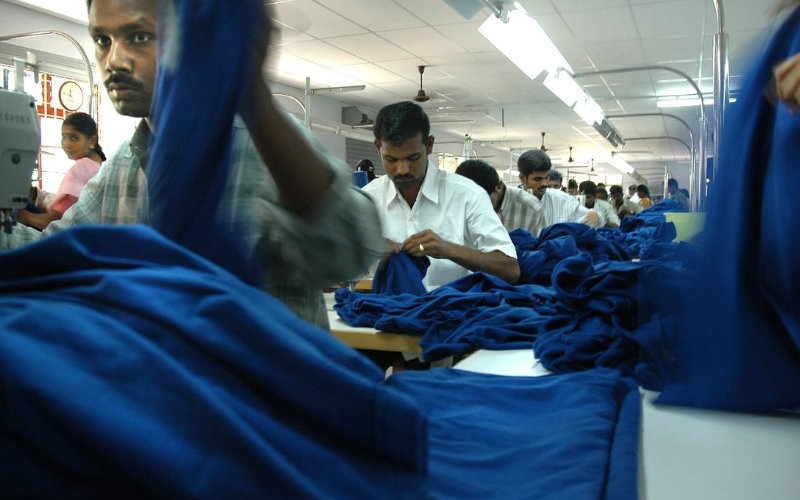Indian Textile Giants Shift Production to Africa as US Tariffs Threaten $90 Billion Export Industry

The imposition of 50% US taxes is prompting the Indian industry to reorganize its production chains. To maintain their access to the US market, companies are studying relocations to countries like Morocco, which benefit from a more favorable customs regime for exporting to the United States.
This orientation is notably followed by companies such as Gokaldas Exports, a supplier to the Gap brand, and Raymond Lifestyle, a textile manufacturer, explains Bloomberg. Gokaldas Exports, which already operates four factories in Kenya and one in Ethiopia, has clearly stated its position through the voice of its CEO: "We will continue to expand in Africa in the event of a 50% tariff." This approach aims to take advantage of a more favorable tax environment.
The reason behind this strategy lies in a significant tax differential. Goods produced in Kenya or Ethiopia, for example, are subject to only a 10% customs duty when entering the US territory, compared to 50% for those exported directly from India. Other sectors, such as diamond and jewelry exporters, are also interested in this alternative, attracted by the tax incentives, such as tax exemptions, offered by countries like Ethiopia, Nigeria or Morocco to attract foreign direct investment.
India is in a state of urgency. A Bloomberg study estimates that exports from labor-intensive industries, such as clothing, could decrease by up to 90% due to these new tariff barriers. Such a contraction would directly threaten the activity and employment in these key sectors of the Indian economy.
These trade measures are part of a broader geopolitical context. The US administration justifies its decision by accusing New Delhi of contributing to the financing of the conflict in Ukraine through its imports of Russian oil. This position has been expressed unequivocally by Peter Navarro, a trade advisor at the White House, who has described the situation as "Modi’s war", directly linking trade policy to the diplomacy of the Indian Prime Minister.
Related Articles
-

Royal Air Maroc Soars: Massive Fleet Expansion Targets 200 Aircraft for World Cup 2030
29 August 2025
-

Blonde Tourist’s Nightmare: Harassment and Culture Shock in Morocco’s Streets
29 August 2025
-

Ryanair Slashes 1 Million Spanish Seats, Shifts Focus to Morocco and Italy Amid Airport Tax Hike
29 August 2025
-

Tangier’s Tourism Boom: Paradise Lost for Middle-Class Moroccans as Prices Soar
26 August 2025
-

Moroccan Milk Boycott Sours Danone’s Profits: How Social Media Activism Cost a Giant Millions
26 August 2025